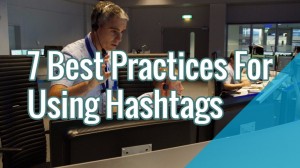Whether you’re trying to climb the corporate ladder, broaden your skillset, or find a new job, your networking strategy can lead you to individuals that are ready, and willing, to help. Additionally, connecting with industry peers and leaders can provide you with unique growth and learning opportunities. So, how do you get the ball rolling?
Step 1: Put Yourself Out There
There are a variety of ways to boost your networking strategy, but one of the most powerful is to get face-to-face. Sign up for conferences or events, which are typically jam-packed with valuable information. Plus, most events give you plenty of time to mingle with your peers and build professional relationships. Local meetups also make great opportunities to socialize with industry professionals in a slightly more relaxed environment.
Additionally, consider volunteering or picking up a new hobby. It’s important to network outside of your field because you never know who could refer you to an awesome role. Pursuing activities that you enjoy will introduce you to people with similar interests and provide plenty of chances to strike up conversation.
Step 2: Get the Most Out of Social Media
Your networking strategy should take advantage of what social media has to offer. There are thousands of groups all over LinkedIn and Facebook that create industry-specific communities. They’re great forums for asking questions, making casual conversation, or organizing meetups. Fostering online relationships is as easy as it gets networking-wise. Craft thoughtful responses to posts, answer group polls, and attend events when you can. Online communities are a great way to make lots of connections, all at once.
If you’re unable to find a group that fits your needs, start conversations on your social media posts. Share informative articles coupled with compelling questions or a trending hashtag to get more eyes on your page. Sharing posts that reflect your interests and expertise will allow your followers to know you on a more personal level – meaning that you may become top of mind if an opportunity were to arise. Engaging and interacting with your contacts strengthens those connections and builds your credibility.
Step 3: Always Follow-Up
We’re all familiar with the saying, “the fortune is in the follow-up.” Networking events are simply starting points for developing new professional relationships. If you have a good conversation with a contact, don’t hesitate to reach out with a phone call, email them an interesting article, or connect with them on social media. These extra steps are a personal touch that show interest and initiative. Continue the conversation by asking more about their organization and sharing insight on how your roles align. You’ll quickly be able to feel out whether or not the relationship can be mutually beneficial in the future.
Step 4: Nurture Your Relationships
When things are going well, it’s easy to push your professional networking strategy to the back-burner. According to Forbes, 23% of more than 2,200 CFOs agreed that failing to keep in touch or only reaching out when you need something is the greatest networking faux-pas that executives make. Regardless of your professional level, no one is immune to inadvertently making this mistake, so nurturing your relationships is key.
Networking is a two-way street. Make sure that you’re not only keeping in touch with your contacts, but that you’re building and strengthening your relationships with them. Small favors such as skill endorsements on LinkedIn or passing along a resume can ensure that your contacts will do the same for you if, and when, the time comes. Little acts of kindness take virtually no time and can set you up for future success. That’s the whole point of networking, right?
Leveraging Your Professional Networking Strategy
The key to long-term career success is having a solid network. Making yourself known and respected in the local community will open up a variety of doors for your career.
Business & Finance Articles on Business 2 Community(75)




